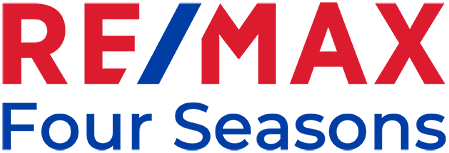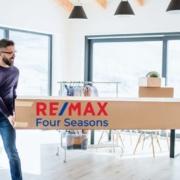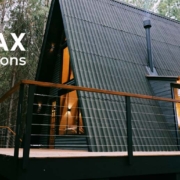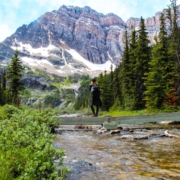Buying a Cabin in BC in Nelson
If you’re thinking about buying a cabin in BC near Nelson, summer is the time to do it! Nelson is home to deep powder winters, sunny summers, and a laid-back mountain-town feel. Here, you can find recreational properties on the lakefront, at the ski hill, or tucked away in the woods. Owning a recreational property here is appealing and, if done right, it can be a smart investment too. But before you pull the trigger, know that buying a second property comes with its own rules, responsibilities, and realities. It’s important to know what you’re getting into and how to set up for long-term success. Let’s break down what matters most when buying a vacation home in the Nelson area.
What Makes a Cabin in Nelson Worth It

Nelson offers an unbeatable lifestyle. In the summer, there’s Kootenay Lake, which makes way for paddleboarding, fishing, swimming, and soaking up the sun. In the winter, there’s Whitewater Ski Resort, backcountry access, and snowshoe trails right outside your door. Even in shoulder seasons, Nelson’s arts scene, nearby hot springs, and quiet pace make it a year-round destination. Those are all important features to note if you’re thinking about owning here.
Even when buying a secondary home, you need to consider location. Waterfront properties around Balfour, Procter, and Harrop can move fast, and you might pay a premium. Same with ski-access homes or cabins closer to Whitewater. If you’re flexible, there’s more affordable land and cabin stock further out in areas like South Slocan or Ymir. But with that distance comes trade-offs in terms of access and resale appeal.
What makes a cabin valuable long term is usually centred on usability. Can you access it in winter? Is it serviced? Is there cell coverage? These things matter more than you’d think. A cabin that looks great on Instagram but takes three snowmobiles and a prayer to reach in January is not for the faint of heart.
If you’re buying the home as a pure getaway destination, look for low-maintenance places that have year-round access. If you’re buying as an income property or future retirement home, lean into location, zoning, and amenities. Either way, get clear on your why before shopping. It’ll save you time and stress.
Financing and Managing a Vacation Property

Buying a cabin isn’t like buying your main home. Banks treat second homes differently. If it’s not your primary residence, most lenders want more skin in the game. That usually means a bigger down payment of 20 to 35 percent. They’ll also look at your current mortgage and overall debt load. If your finances are tight, you may need to shop around or look into secondary lenders.
Some cabins, especially off-grid ones, might not even qualify for traditional financing. No power, no road access, no heat? That can be a red flag for banks. If you’re going that route, you may need to pay cash or secure a private loan.
Beyond the mortgage, there’s the cost of keeping the place running. Property tax, insurance (which can be higher on seasonal homes), utilities (if you have them), and seasonal upkeep all add up. You’ll need to budget for snow removal, road maintenance, heating, and possibly repairs from freeze-thaw cycles or weather damage. A cabin won’t care for itself.
If you’re not living nearby, property management is another cost to consider. Whether you rent it out short-term, long-term or not at all, you’ll want someone local to keep an eye on things. That could be a neighbour, a professional service, or even a friend on retainer.
Lastly, make sure you insure it properly. Some cabins fall outside standard policies because of access issues, wood heat, or being unoccupied most of the year. Work with a broker who knows rural and recreational properties. Don’t cut corners here, it’s not worth the risk.
Zoning, Short-Term Rentals, and What You Need to Know About Buying a Cabin BC

Just because it’s a cabin doesn’t mean you can rent it out, expand it, or even use it the way you want to. That all depends on zoning and local bylaws.
Start with zoning. Some recreational properties are zoned for residential use, others for seasonal use only. Seasonal zoning can mean you’re not allowed to live there full-time, or even stay all year. Some areas restrict building types, lot coverage, or require certain services like septic or potable water. You need to check this before you buy. Don’t assume you can just “figure it out later.”
If you’re thinking about using the cabin as a short-term rental, know that it’s a hot topic in the region. The City of Nelson has strict rules on short-term rentals, including licensing, safety inspections, and zoning requirements. In some areas, short-term rentals are flat-out banned unless it’s your primary residence. Rural properties have more flexibility, but you’ll still want to check with the Regional District of Central Kootenay (RDCK).
Another thing buyers overlook is access. Just because there’s a road doesn’t mean it’s public or maintained. Some cabins are only reachable by private easements or seasonal roads. And if you plan to use the cabin in winter, make sure someone maintains the road. Otherwise, you’ll be snowshoeing in with your groceries.
Contact us About Buying a Cabin BC!
If you’ve been dreaming about buying a cabin in BC, now’s a good time to make it happen. Reach out to our team, and we’ll walk you through the best options in and around Nelson and help you find a place that fits your lifestyle and budget. Let’s find your perfect vacation spot!

Frequently Asked Questions (FAQ) About Buying a Cabin BC in Nelson
- Can I get a mortgage on a cabin, or do I need to pay cash?
It depends on the property. If the cabin has year-round road access, power, and heat, most lenders will consider financing it. But if it’s off-grid, seasonal-use only, or remote, it may not qualify for a traditional mortgage. In those cases, you’ll need to pay cash or find a private lender. Expect to put down 20–35% minimum either way.
- Are short-term rentals allowed if I buy a cabin near Nelson?
Sometimes, but not always. Inside the City of Nelson, short-term rentals are heavily regulated and only allowed in primary residences with proper licensing. Outside city limits, rural zoning varies. Some areas in the RDCK are more flexible, but you still need to check zoning bylaws before assuming you can Airbnb a place.
- What kind of insurance do I need for a cabin?
You’ll likely need a specialized policy for seasonal or recreational properties. Standard home insurance may not cover off-grid cabins, properties with wood stoves, or homes that sit vacant for long stretches. Talk to an insurance broker familiar with rural BC to avoid gaps in coverage.
- Is it worth buying a cabin if it’s not on the lake or near the ski hill?
Yes, but you need to think long-term. Properties further from the lake or ski hill are often more affordable, but come with trade-offs like tougher resale, longer drives, or limited winter access. If you’re buying for personal use and don’t mind the distance, you can find great value in places like Ymir or South Slocan.
- What’s the biggest hidden cost of owning a cabin?
Maintenance. Snow removal, insurance, repairs, heating, and road upkeep can add up, especially if you’re not there full-time. Insurance alone can be tricky if your cabin uses wood heat, sits empty most of the year, or isn’t accessible year-round. Plan your budget with extra buffer room, always.







Leave a Reply
Want to join the discussion?Feel free to contribute!